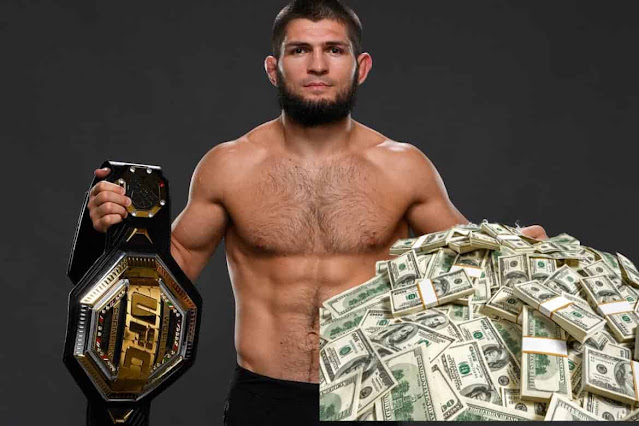There are several reasons why some people argue that MMA fighter pay should be higher than what they currently get. Why should they demand such money? Here are the reasons why:
Risk and Physical Demands in MMA Fighting
MMA fighters put their bodies and health on the line every time they step into the ring, cage, or octagon. The physical demands and potential risks of injuries are significant.It is just fair to be compensated for putting their lives on the line in the name of entertainment. A ton of sacrifice and risk should pay off and not become just a phase.
MMA Fighters Have a Limited Career Span
Wear and tear are faster when you are in combat sports. A fighter's career in the top promotions can be relatively short already due to needing to stay on the win column.
Add to these the physical toll that training and competing take on their bodies and they are playing with falling into a hole that is hard to climb out of.
It's good to maximize on such earning potential too due to its limitations. Higher pay can help them secure their financial future beyond their fighting years.
MMA Training Costs Can Build Up
Gone are the days when it's a mortal sin for MMA fighters to admit that they have a day job on top of training for professional MMA. That said, such life requires a substantial financial investment in coaching, facilities, equipment, and travel.
These costs build up and fighter pay isn't going to cut it, especially if you're in the regional leagues. At least higher pay can help offset these costs.
MMA Brings Entertainment Value
Fighters are any MMA promotion's main draw. Their performances generate revenue through ticket sales, pay-per-view buys, merchandise, and sponsorships.
Some argue that fighters should receive a larger share of the revenue they help generate. Besides, without them, there's no event even if you are the greatest promoter or businessman of all time.
Lack of Unionization from MMA Fighters
Unlike some other professional sports leagues, UFC fighters are not unionized, which can make it challenging for them to negotiate for better pay and working conditions collectively.Disparities in MMA Fighter Pay
There have been instances where fighters on the undercard or prelims earn significantly less than the higher-profile fighters on the main card.If some main carders need to have a day job just to sustain, more so the under carders. Critics argue that the roster should have a more equitable pay distribution.
Market Growth Of MMA
MMA can still be considered a growing sport. It has made strides in terms of popularity to generate more revenue. Some believe that fighters should directly benefit from this growth through higher pay.Cost of Living Is Higher for MMA Fighters
Training costs is just one thing. Consider the fitness side of things where they also need to invest in quality food just to keep enough muscle mass to be in fight shape.Some even have to relocate where they can find quality training facilities and coaching. Setting up camp outside home means you eat out a lot more too. Too much of it can further strain their finances if fighter pay isn't enough.
Post-Fight Medical Expenses Are Not Always Covered
Fighters often need medical attention after fights due to injuries sustained during the match. Some believe the promotion should cover these expenses, further justifying higher pay.Not all injuries are taken care of by the promotion. Oftentimes, injuries sustained in training are taken care by the fighters themselves out of their pockets.
At least higher MMA fighter pay will help offset contingency expenses.
MMA Promotions Need to Reconsider Contracts
It's important to note that while many people support higher fighter pay, there are also arguments on the other side.Factors such as the business model of the promotion, the complexity of revenue distribution, and the potential impact on ticket prices and profitability. Finding a balance that benefits both fighters and the promotion is a complex challenge.
Rule of thumb should be that the frontliners should get the bigger end of the deal.


Comments
Post a Comment